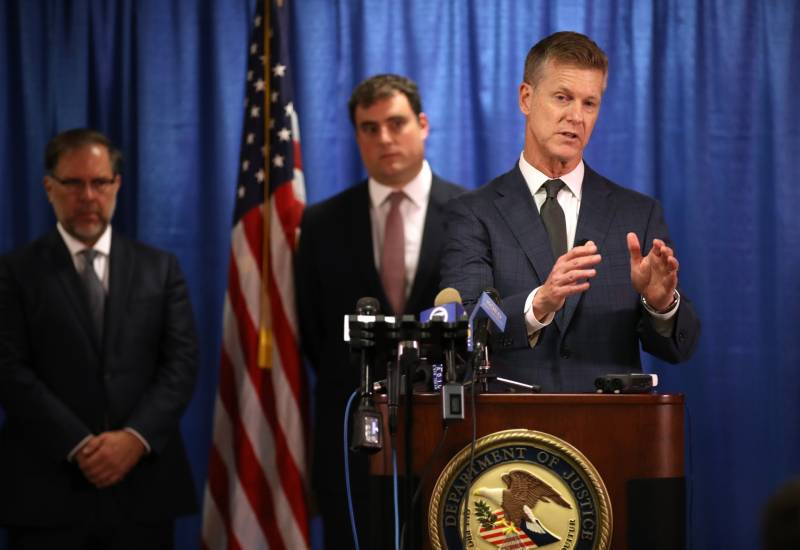Now, I’m talking and going with you along this philosophical line. Obviously, in the context of any particular case, defendants who’ve been charged but have not been adjudicated are presumed innocent. And I have a profound respect for that presumption of innocence. So I want to just close by emphasizing that I am reacting to general questions and not talking about any particular case.
And that’s totally fair. You make the point that you’ve seen a lot in your years of service. So for people who are like, ‘Oh, my God, I can’t believe my government is doing this,’ where would you put this in the context of corruption in other cities? Where would you put it on the scale?
I’m not able to compare what is happening in San Francisco to other cities. I just don’t have the competency to do that.
The one thing that I would say that I think connects fairly to your question is that early on when I returned to the office as a U.S. attorney, I identified 25 people in my office and put each one of them in charge of one particular aspect of the myriad of different kinds of cases that we handle. And one of those 25 is an assistant U.S. attorney who I put in charge of public corruption.
And I said, ‘OK, what I want you to do is I want you to find the people in Chicago and in New York and in the other offices that you identify that have greater experience with public corruption cases than historically this office in San Francisco has had. Find them, talk to them, come back and tell me what it is that we should be thinking about when we do these cases. And he did that. And I think that that has been a contributor to the work that we’ve done.
What would you say to the people who ask, ‘Should this shake my faith in my local government?’
I do think that a city like San Francisco is best served not just by honest leaders, but also by an active citizenry. And I do wonder about the level of engagement that I see in San Francisco.
Just generally speaking, with our political process, what I see is a small number of people who are highly actively engaged. And I see a larger number of people who are enjoying all the other things that San Francisco has to offer.
So, to the extent that looking at the cases that we have charged serves as a wake-up call for someone who is in San Francisco — maybe I should be paying more attention to this — I welcome that.
At this point, several people connected to the scandal have pleaded guilty and cooperated with investigators, including restaurateur Nick Bovis and Walter Wong, a permit expediter. What’s their motivation for doing so? Did they go, ‘I can’t do this anymore!’ Or was it something where, in a practical matter, fancy lawyering and whatnot, they didn’t really have much of an option in front of them?
I’m trying to have the conversation that you want to have and certainly can talk generally about the process by which defendants come to cooperate. That’s something that I’ve seen on both sides of the courtroom going back for four decades.
I think probably the easiest way to look at that is from the perspective of the client-counsel interaction and again, not talking about any particular case and certainly not intruding on any particular attorney-client privilege, but just positing sort of the hypothetical conversation. It usually goes something like this:
You’re confronting these charges. You’re confronting this evidence. What’s going to be your answer? And oftentimes there’s sort of a moment where the client is saying, ‘Well, you know, how come I got to answer? You’re the lawyer.’
But, of course, the lawyer doesn’t know the facts. The lawyer can only learn those from the client, maybe from the discovery that’s provided by the prosecutor. So eventually the conversation will move in the direction of, ‘Do we have an answer to this or don’t we?’ And if we do, then let’s get out there and provide that answer, and if we don’t, well, then let’s start planning for our day of reckoning.

